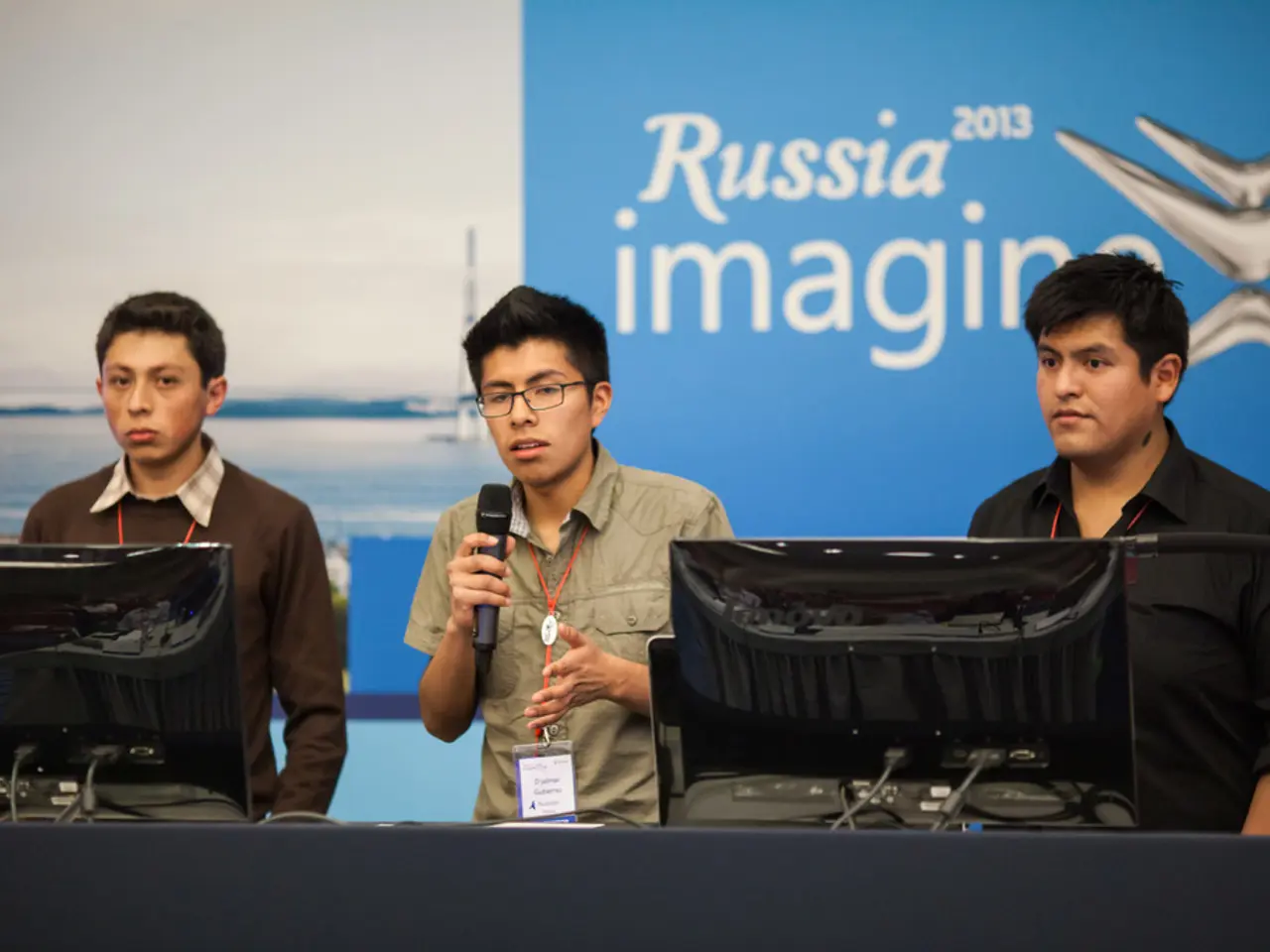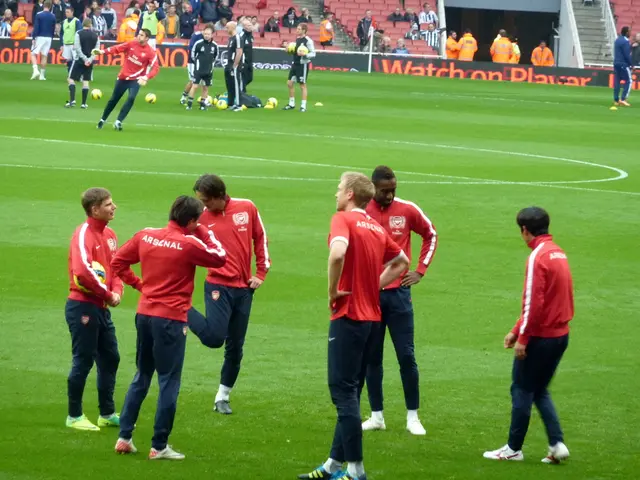EU leaders endorse Ukraine's future, contrasting Hungary's Orban, prior to Trump-Putin meeting in Alaska
The European Union has reiterated its support for Ukraine's sovereignty and territorial integrity, expressing disapproval of the Alaska summit between U.S. President Donald Trump and Russian President Vladimir Putin. This stance comes after a joint statement issued by EU leaders, excluding Hungary, ahead of the summit [1][2][4].
The EU's position is one of solidarity with Ukraine, rejecting any sidelining in key negotiations, and continued pressure on Russia through sanctions and political support. The summit, which did not include Ukraine or European allies, has led to a sense of European marginalization in discussions about the future of European security and the Ukraine conflict [1][2].
The majority of EU states (26 of 27 members, excluding Hungary) have reaffirmed their commitment to Ukraine’s sovereignty and territorial integrity and condemn modifications of international borders by force [2]. They have also expressed concern over Trump’s approach, which seemed to embrace delaying sanctions on Russia and even floated the idea of Ukraine ceding some territories to Russia, positions largely rejected by European partners [1][4].
Hungary, however, has stood apart, not fully engaging with the EU consensus on Ukraine and the summit’s implications. Prime Minister Viktor Orban did not comment on Hungary not associating itself with the joint statement, but described being left on the sidelines as "sad" [2].
A broader coalition supporting Ukraine, including the UK outside the EU, stands aligned with the 26 EU states except Hungary in firmly backing Ukraine. European leaders are focused on sustaining a transatlantic unity with the U.S. and others in supporting Ukraine despite the Kremlin’s attempts to divide these alliances through bilateral negotiations such as the Alaska summit [4].
The joint statement also voiced the EU leaders' readiness to further contribute to security guarantees for Ukraine, stressing that a Ukraine capable of defending itself effectively is an integral part of any future security guarantees. The leaders also pledged to uphold restrictive measures against Russia [1].
Orban warned that providing instructions from the bench could make things worse, suggesting that the EU leaders initiate an EU-Russia summit, based on the example of the U.S.-Russia meeting. The leaders did not comment on the Alaska summit in the joint statement, as mentioned in earlier bullet points [1].
In conclusion, the EU's stance is clear: a just and lasting peace must respect international law, including the principles of independence, sovereignty, and territorial integrity. The EU remains committed to providing political, financial, economic, humanitarian, military, and diplomatic support to Ukraine, and will continue to uphold restrictive measures against Russia in pursuit of a secure and stable Europe.
[1] Reuters. (2021, June 16). EU foreign ministers voice readiness to further contribute to security guarantees for Ukraine. Retrieved from https://www.reuters.com/world/europe/eu-foreign-ministers-voice-readiness-further-contribute-security-guarantees-ukraine-2021-06-16/
[2] Politico. (2021, June 16). EU leaders issue joint statement on Ukraine before Alaska summit. Retrieved from https://www.politico.eu/article/eu-leaders-issue-joint-statement-on-ukraine-before-alaska-summit/
[4] The Guardian. (2021, June 16). EU leaders issue joint statement on Ukraine before Alaska summit. Retrieved from https://www.theguardian.com/world/2021/jun/16/eu-leaders-issue-joint-statement-on-ukraine-before-alaska-summit
- The European Union has maintained a firm stance against Russia, expressing disapproval of the Alaska summit and reiterating its support for Ukraine's sovereignty and territorial integrity.
- In a joint statement, the majority of EU states, excluding Hungary, condemn modifications of international borders by force and express concern over the embrace of delayed sanctions on Russia.
- A broader coalition, including Turkey, is aligned with the 26 EU states except Hungary in firmly backing Ukraine and upholding restrictive measures against Russia.
- Politics surrounding the issue of war-and-conflicts, specifically the Ukraine conflict, have led to a sense of European marginalization in discussions about the future of European security.
- Policy-and-legislation within the European Union emphasizes the importance of a just and lasting peace that respects international law, adhering to principles of independence, sovereignty, and territorial integrity, while providing continued support to Ukraine.







